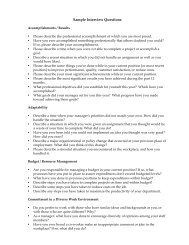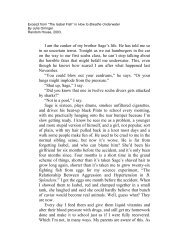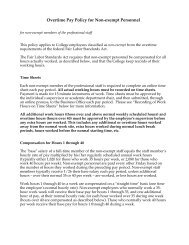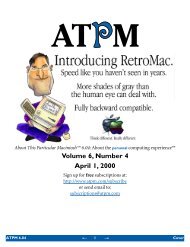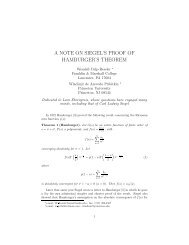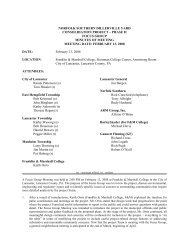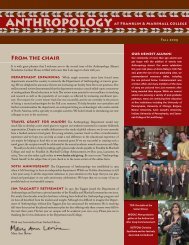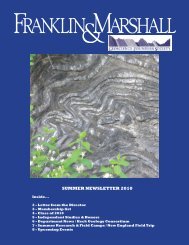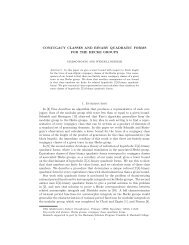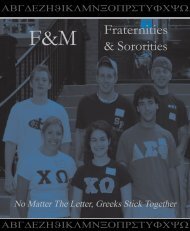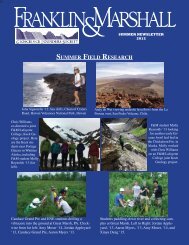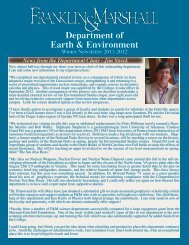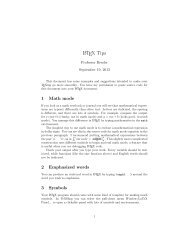Guidelines for Conducting Effective Employment Interviews
Guidelines for Conducting Effective Employment Interviews
Guidelines for Conducting Effective Employment Interviews
Create successful ePaper yourself
Turn your PDF publications into a flip-book with our unique Google optimized e-Paper software.
writing non-job-related comments on your interview guide (<strong>for</strong> example, do not writecomments about the candidate's appearance, race, etc.).Explore additional ways to assess candidates' skills and abilities-- Consider whetheradditional in<strong>for</strong>mation will be required of each candidate be<strong>for</strong>e or during the interviewprocess. For example, as appropriate to the vacant position, each candidate may be askedto: give a brief presentation on a relevant topic; provide work samples; prepare a briefwritten report on a current topic in their field or a best practice; compose a letter, etc. Besure to establish the same requirements of all candidates, and be sure you can explainhow the skills and abilities being assessed are related to necessary job skills.Because employment tests may be determined to have an "adverse impact" on aprotected group, managers / search committees must contact Human Resources be<strong>for</strong>eusing any type of skills assessment, physical fitness evaluation, "personality" test, orother type of employment test during the search process.Develop an evaluation sheet-- A systematic evaluation of candidates' responses tointerview questions and any other assessment methods allows <strong>for</strong> a fair comparisonacross candidates who are often interviewed by different individuals. A standardizedevaluation process helps assure all candidates are evaluated on the same basis. To makethe interview process more objective, you may want to list all required job skills, abilities,and experience/education requirements on an evaluation sheet. Then, after eachinterview, the search committee or interviewer can rank each candidate from 1 to 5 oneach required job skill and ability. Totaling the rankings <strong>for</strong> each candidate following allinterviews may help guide your selection decision.Develop the interview agenda and schedule interviews-- After <strong>for</strong>mulating interviewquestions, determine with whom candidates will meet while on campus (student groups,department members, campus committees, etc.). It is generally recommended that atleast a couple staff members who will be supervised by the new employee have theopportunity to meet all candidates, such as by taking the candidates to lunch. Allow thesame amount of time <strong>for</strong> each candidate's interview.When planning the campus visit:• allow a few minutes between interviews so candidates have time to checkmessages, use the restroom, etc.• assure each candidate receives an interview or campus visit schedule in advance,listing the name and title of each individual with whom he/she will meet• build in time <strong>for</strong> a campus tour or tour of Lancaster as appropriate• arrange to pick up each candidate from the airport, train station, or hotel asappropriate, and arrange transportation back to the airport, train station, or hotel atthe end of the day• arrange <strong>for</strong> a search committee member to escort each candidate from interview tointerview, if the candidate will be moving to several locations on campus• arrange to have lunch or dinner with each candidate if interviews will extendthroughout the day• consider giving each candidate a small gift such as a Franklin & Marshall coffeemug



